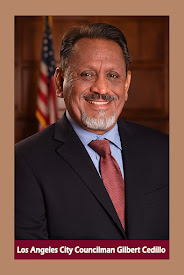'Road to Juarez' Doesn't Disappoint
By Alejo Sierra
In Road To Juarez, the debut
feature film by director David Ponce de Leon takes us on a compelling, 20-year
roller-coaster ride that never lets you catch your breath. It’s a
full-throttle, full-tilt race with no pit stops, a high-octane, whirlwind road
trip with precedent in films like Easy Rider and Motorcycle Diaries,
but still more easily associated with emotion-riddled action dramas such as the
breakout Amores Perros, by Alejandro González Iñárritu
Inspired by true events, “Road To
Juarez” is the story of Jacob Saenz (Walter Perez), a Mexican-American trying
to save his father, who he believes has been diagnosed with terminal
cancer. Because Jacob and his best
friend Rob (Charley Koontz) are bonded by a larcenous bent established mutually
in early childhood on the streets of LA, they are predictably taken under a
wing, eventually, by Rob’s equally lawless uncle Doug (William Forsythe), a
cunning but nonetheless big-hearted ex-con with ties to the Mexican underworld.
An ensuing expedition, which they
are told is simply the recovery of a precarious big-ticket taxidermy haul,
brings them to Mexico City for an adventure that goes terribly wrong. And this is where the real fun begins.
Ivan, (Adal Ramones), the right hand
henchman of a powerful Mexican underworld boss, and his brother, Igor, (Pete
Pano) complicate matters by kidnapping Rob and his employers 17-year-old son,
Fito (Joshua Ponce de Leon). The stuffed and preserved exotic animals Jacob and
Rob believe they have been hired to find and deliver are actually more.
Inspired by true events, the film
echoes the undeniable reality of current narco-politics which are the hallmark
of modern media coverage with regard to Mexico and its status as a
narco-state. Ponce de Leon successfully
manages to reduce the criminal aspects of a story grounded in truth while
elevating a heartfelt narrative about friendship, family and the very real
possibility that many of us can be motivated to do the wrong things for the
right reasons. The Mexico sequences are
vibrantly vivid as shot by cinematographer Jonathan West.
Edited by Luis and Paulo Carballar,
the Oscar-nominated team behind Amores Perros,
the film unfolds as a non-linear narrative that actively engages
interest because it is buttressed by a strong ensemble and solid performances
from Yareli Arizmendi (A Day Without A Mexican) as a trusted member of
household in Mexico—where Perez and Koontz appear as two less than innocent
dupes—and Romina Peniche as Mirella, the reluctant wife of a drug kingpin who
falls for Jacob, the sympathetic anti-hero protagonist. Scored by Luis Perez
and featuring several rising Mexican indie alt-rock bands, the soundtrack
contains not a single mariachi song, contrary at least one misguided and
perhaps intentionally dismissive mainstream press reviewers.
Stylistically, the film seems to
draw from Robert Rodriguez, Quentin Tarantino and, to a lesser degree,
Scorsese. Yet one of its major feats resides in the new vernacular Ponce de
Leon unveils as a herald of the new Mexican-American cinema gathering storm
from Texas to LA. It is a wave foreshadowed by young, lean auteurs like Ponce
de Leon, a movement of independent cineastas who play by their own rules
on a board of their own making, filmmakers who take dismissal by critics like
Stephen Dalton, who doesn’t know the difference between a mariachi tune and a
hit Latino indie alt-rock song, with detached amusement.
Peniche, veteran Mexican star
Ramones, Perez and Koontz have the kind of on-screen chemistry evident in films
like 21 Grams and a slew of Mexican films which have forced the industry to
reevaluate South of the border film, an industry that is loathe, however, to
anoint films from Hollywood’s own east of the river backyard.
If there is a weakness in film, it
manifests in the unlikely relationship between Perez and Peniche, but one
should wonder if that is simply a manifestation of the fact that the Hollywood
system that Dalton and the studio heads he answers to would be much more
willing to accept and condone the tale if Peniche’s character has been written
as a Beverly Hills cougar, a wealthy powerful woman who takes on with a brave,
handsome but not quite wholesome kid from East LA, rather than a devoted mother
who blinds herself to her husband’s illicit trade.
A grizzled William Forsythe, as the
tormented--and still somehow sympathetic but still ill-fated villain--delivers
dialogue that is no less cliché or incredulous than anything Steve Buscemi says
in Reservoir Dogs (another reason to question the objectivity of some
reviewers) is perfect as the under-the radar outlaw who talks his nephew and
his nephew’s best friend into a complex heist that goes awry.
For all of these reasons and more, Road
to Juarez is destined to garner a cult following, despite a limited
theatrical release. An extended theatrical run for the film in Austin, Texas, a
city known for its cinematic sophistication, is telling. Audiences can look
forward to de Leon’s next directorial outing.
(Pictured above: Adal Ramones as the psychotic killer cradling his brother in Road to Juarez)
(Pictured above: Adal Ramones as the psychotic killer cradling his brother in Road to Juarez)





Comments
Post a Comment